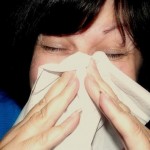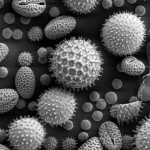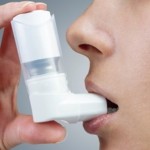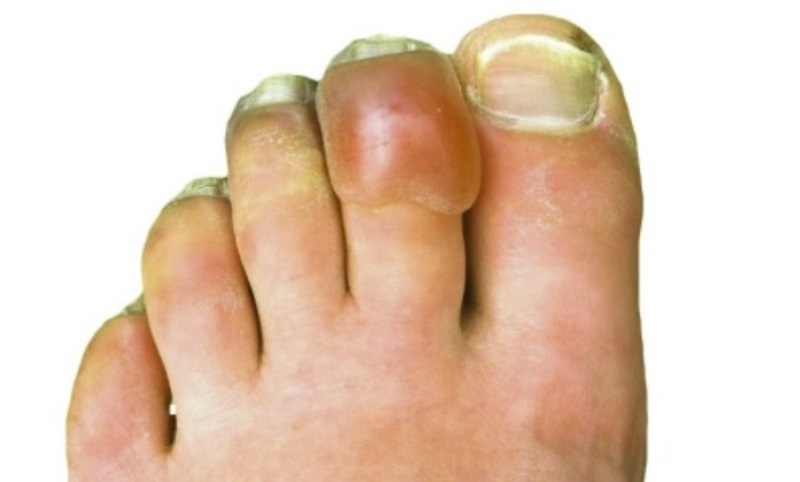Several people suffer from pollen allergy. Pollen is a fine powder that many trees, grasses, weeds, and flowers produce, so that they can fertilize other plants of the same species. In people who suffer from pollen allergy, their bodies mistakenly identify pollen as a threatening invader, which needs to be gotten rid of. So their bodies start producing antibodies to fight off the pollen. This is what is an allergic reaction, and the specific type of pollen that causes such a reaction in the body is called an allergen.
Suggested read: All you need to know about treating food allergy with home remedies
While some people suffer from pollen allergies throughout the year, others experience them seasonally. For example, birch trees bloom in the spring, causing birch pollen to be released into the air, thereby causing allergies in spring. Similarly, ragweed allergies affect people during late spring and early fall.
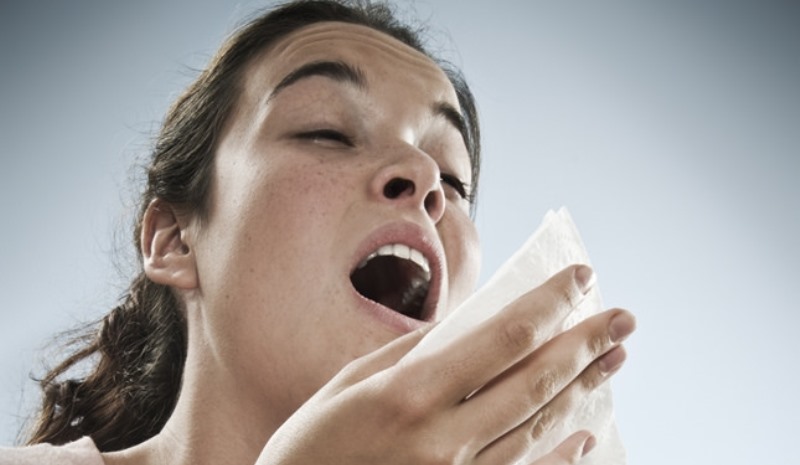
Image source: Google, copyright-free image under Creative Commons License
Although allergies aren’t life-threatening, they do cause a fair bit of discomfort in those who suffer from them. However, with certain medications, allergy shots, and even certain lifestyle changes can all help in relieving the allergy symptoms. A pollen allergy may also be called hay fever or allergic rhinitis.
Types of pollen allergies
These are the most common types of pollen allergies that affect people:
- Grass pollen allergy
- Ragweed pollen allergy
- Birch pollen allergy
- Oak pollen allergy
- Pine pollen allergy
- Parthenium pollen allergy
Symptoms of a pollen allergy
The most common symptoms of a pollen allergy include:
- Runny nose
- Sneezes
- Sinus pressure
- Cough
- Scratchy throat
- Itchy, watery eyes
- Redness in eyes
- Nasal congestion
- Increased asthmatic reactions
- Decreased sense of taste or smell
Home remedies for pollen allergies
Although medications and allergy shots do help in relieving the symptoms of pollen allergies, there’s no harm in trying out home remedies too. If you’re tired of popping that pill and/or getting stung with a needle for your allergy shot, you might want to give these home remedies for pollen allergies a shot. You won’t have to lose anything. If they work for you, there’s nothing like it, right?
1. Apple cider vinegar

Image source: Google, copyright-free image under Creative Commons License
Apple cider vinegar is amazing in helping alleviate the symptoms of pollen allergies because of its anti-inflammatory and anti-bacterial properties.
Remedy
- Mix 1 teaspoon of organic, unfiltered apple cider vinegar in a glass of water and drink this thrice a day to find relief.
2. Apple and walnut trail mix
Apples contain the compound quercetin, nature’s very own anti-histamine, while walnuts are rich in magnesium and vitamin E. Magnesium helps reduce any coughing and/or wheezing caused by the allergy, while the vitamin E helps boost immunity, thereby protecting your body from reacting to the allergens.
Remedy
- Cut 1 apple into small, bite-sized chunks, and 1 cup of walnuts into quarters. Toss them both so that they are thoroughly mixed. Eat this 2-3 times a day to help relieve symptoms of pollen allergy.
Pro tip: You can even add dried cherries, or sunflower seeds to this trail mix to enhance its flavor.
3. Butterbur
Butterbur is a herb that has been super effective in treating pollen allergies. Especially effective are the leaves and root of the butterbur herb, which help reduce inflammation, headaches, and other symptoms of grass pollen allergies.
Remedy
- Taking 1 pill containing butterbur is known to be as effective as a popular anti-histamine drug.
Pro tip: Exercise extreme caution while ingesting butterbur, because it contains a highly toxic alkaloid, which could potentially damage the liver, while also possibly causing cancer.
4. Citrus drink
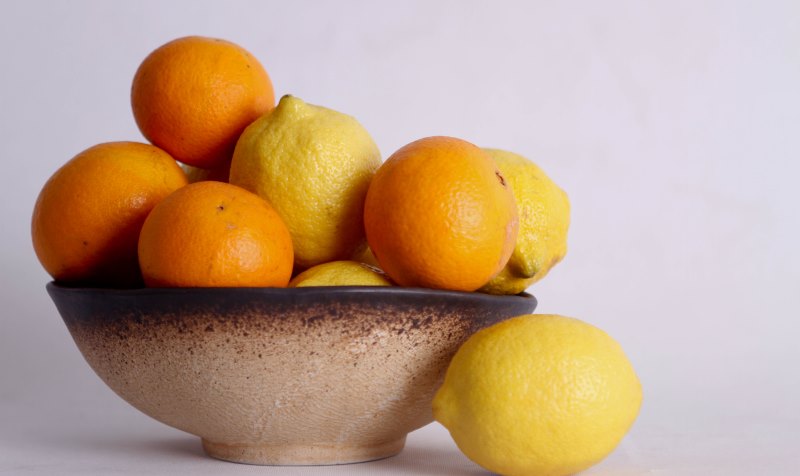
Image source: Google, copyright-free image under Creative Commons License
If you fuel up on loads of vitamin C, it could help significantly in finding relief from seasonal allergies. Vitamin C is a powerful antioxidant in itself, thereby helping treat allergies.
Remedy
- Squeeze the juice of half a lemon and 2 oranges into a glass. Chill this in the fridge for a few hours. Stir in 1 tablespoon of raw, unprocessed local honey into it, add a couple of ice cubes, and drink it every day.
5. Coconut oil
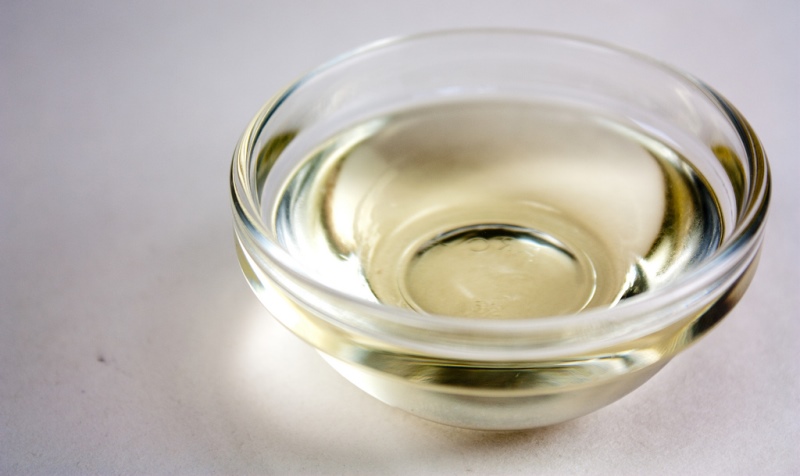
Image source: Google, copyright-free image under Creative Commons License
Coconut oil is excellent for keeping your gut healthy, while also helping prevent and treat allergies. Not only does it help improve digestion, it also helps promote the growth of good gut bacteria.
Remedy
- Consume 1-2 tablespoons of virgin coconut oil every day to find relief from pollen allergy symptoms.
Suggested read: All you need to know about treating dizzy spells with home remedies
6. Ginger
Ginger is a natural anti-histamine, which also contains several powerful immune-boosting properties. Not only does it help reduce chest congestion, it also clears away phlegm.
Remedy
- Add 1 teaspoon of freshly grated ginger to 1 cup of boiling water and cover it with a lid. Allow it to steep for 10 minutes, before straining the liquid into a clean cup. Add a bit of honey and a few drops of lemon juice and drink it twice a day to help treat pollen allergy symptoms.
7. Goldenseal
Goldenseal is an excellent herb that has powerful anti-bacterial and immune-boosting properties, that help in treating hay fever and allergies quite effectively.
Remedies
- Add 1 teaspoon of dried goldenseal to 1 cup of boiling water and cover it with a lid. Let it steep for 10 minutes, before straining it and drinking it twice a day for allergy relief.
- You can also ingest goldenseal in capsule form to find relief from pollen allergy symptoms.
8. Hot peppers
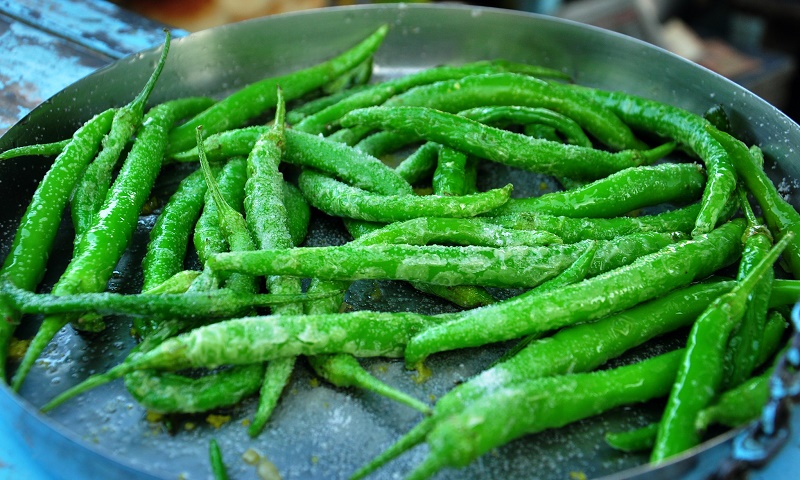
Image source: Anand Subramanian
Hot chilli peppers, horseradish, cayenne pepper, and hot mustard are amazing ingredients which help clear away nasal congestion.
Remedies
- You can ingest these hot peppers in capsule form so that it doesn’t affect your taste buds, especially if you’re not used to hot, spicy foods.
- You can include hot, spicy foods made with the above mentioned peppers in your diet and enjoy clear sinuses and airways.
9. Local honey
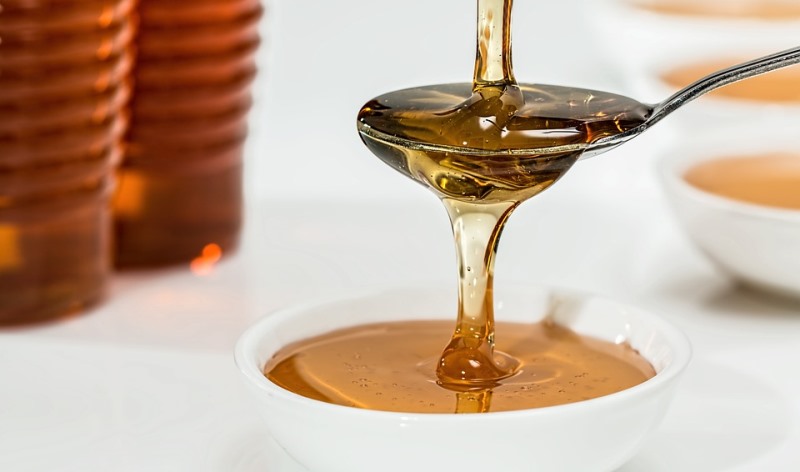
Image source: Pixabay, under Creative Commons License
Honey contains anti-bacterial, anti-viral, and antibiotic properties, which make it ideal in helping treat pollen allergies. Although there isn’t much scientific evidence to back this remedy, several people who have tried it have given it a positive feedback.
Remedy
- Savor 1 teaspoon of raw, unprocessed local honey once or twice a day to help relieve symptoms. The closer the honey is to your place of dwelling, the better it is to help treat the allergies.
Pro tip: Start on this remedy at least a month prior to the allergy season.
10. Nettle and peppermint tea
Nettle is a very beneficial herb, that can help alleviate the unpleasant symptoms of seasonal allergies effectively. And the peppermint can help inhibit the production of histamines, which helps reduce the discomfort and unpleasantness that comes with a pollen allergy.
Remedy
- Put a quarter cup each of chopped fresh nettle leaves and peppermint into 1 cup of boiling water. Cover it with a lid, letting it steep for 10 minutes. Strain the liquid, add honey to taste, and drink this twice a day to find relief from the symptoms of allergy.
11. Omega-3 and omega-6 essential fatty acids
Omega-3 essential fatty acids are known to help fight inflammation and allergens, thereby providing relief from allergy symptoms. Omega-6 essential fatty acids, on the other hand, help with allergy relief by curbing the production of histamines in the body, which cause allergic reactions.
Remedies
- You can up your intake of omega-3 essential fatty acids by ingesting fish oil supplements, or including walnuts, eggs, flax seeds, flax seed oil, or cold water fatty fish in your daily dietary intake.
- For omega-6 essential fatty acids, you can include walnuts, sesame seeds, safflower seeds, and Brazil nuts in your daily dietary intake.
12. Probiotics
Allergies are sometimes caused by an imbalance in the immune system, which in turn causes the body to react extremely to an external threat. Probiotics are known to help reduce the incidence of allergies.
Remedies
- The one common probiotic you can consume is yogurt. It contains live cultures, which help boost the good kind of bacteria in your gut.
- Another alternative is to ingest high quality probiotic capsule.
13. Red onion water

Image source: Google, copyright-free image under Creative Commons License
Onion contains a compound called quercetin, which is water soluble, and very helpful in acting as a natural anti-histamine. This compound is known to help reduce inflammation, while also acting as a bronchodilator, thereby opening up airways, in turn helping you breathe easier.
Remedy
- Slice 1 onion into thin strips and add it to 4 cups of water. Let it sit for 8-12 hours, so that the water gets infused with the onion slices. Then, drink this once or twice a day to treat the allergy symptoms effectively. Add some honey to it before drinking it.
Suggested read: All you need to know about treating a dry mouth with home remedies
14. Saline rinse
Store-bought saline sprays or homemade saline rinse, both work effectively to ease nasal congestion caused by pollen allergies.
Remedy
- Buy pre-mixed saline sprays and squirt them up each nostril for relief from nasal congestion caused by pollen allergy.
These are all the superbly effective home remedies for pollen allergies. These don’t have any side effects, or cause you any discomfort. Try these when you’re next hit by a pollen allergy.
For more updates on home remedies, health tips, and fitness secrets, sign up for our newsletter today!
Featured image source: Google, copyright-free image under Creative Commons License



